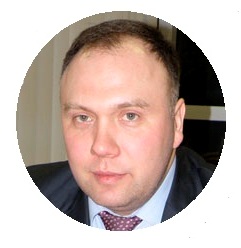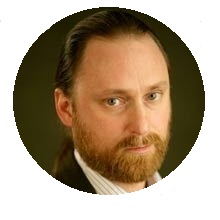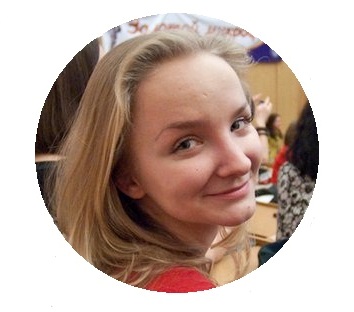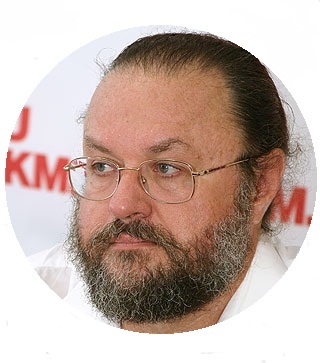Faith, trust, and elections. Who do believers vote for? Should priests have an active political position?
04/20/2012Results of a Russia-wide representative survey (field work FOM-Penta, 1500, 2012). Respondents were asked the following questions:
Who did you vote for in the Russian presidential election of March 4, 2012?
- 1. Do you agree with the statement “I trust Putin”?
- 2. Do you agree with the statement “It is worthwhile for priests to actively express their positions on public policy issues”?
10 FACTS ABOUT RELIGION, ELECTIONS, AND ATTITUDE TOWARD PRIESTS
- Practicing believers who belong to the Russian Orthodox Church vote for Putin.
- Orthodox Christians who do not belong to the Russian Orthodox Church voted less for Putin, but more for Zyuganov.
- Atheists voted above the Russian average for Zhirinovsky (10%).
- Muslims, more than any other group, did not vote (35%).
- Trust in Putin: high levels of absolute trust among Muslims and low levels among non-denominational Christians.
- Society is divided concerning the active position of clergy: A third of respondents are against, another third is in favor, and the remaining third find it difficult to answer.
- Those who want to listen to priests are Orthodox Christians, working pensioners, students, and also those who are associated with the health care system and philanthropy.
- Those who do not want to listen to priests are leaders and entrepreneurs, potential emigrants, Prokhorov advocates, and those who spend a lot of time on the internet.
- Expectations. Respondents from Central and Far Eastern districts of the federation expect an active position of clergy, whereas those from North Western, Sothern, and Northern Caucus districts expect a less active position.
- 10. Muscovites are divided. On the question about the active position of clergy, they less often indicate that the question is too difficult to answer and answer more either “for” or “against.”
WHO DID THE REPRESENTED RELIGIONS VOTE FOR IN THE PRESIDENTIAL ELECTION OF 2012?
As is shown in the given poll, votes for Vladimir Putin do not radically differ from the actual results of the election according to religious preference. In spite of this, the answers to other questions indicated the following: the respondents who voted for V. Putin are more likely to show a high level of trust in the Russian Orthodox Church and Patriarch Kirill. More than half of Russians who began “to trust the R.O.C. more” in 2012, voted for V. V. Putin.
6 OUT OF EVERY 10 RESPONDENTS (61%) EXPRESSED TRUST IN VLADIMIR PUTIN, EVERY THIRD (30%) EXPRESSED DISTRUST.
Across Russia, representatives of the various religions trust Putin about the same (a high level of trust among Muslims, comparatively low among atheists, and lowest levels of absolute trust among non-denominational Christians). In this case, judging by the survey, those respondents who noted that “they regularly attend church services” have an above average level of trust in the new President of the Russian Federation. Trust in Putin is also higher among those who “wear a cross,” and lower among those who “[are] regularly on the internet.”
IT IS WORTHWHILE FOR PRIESTS TO ACTIVELY PROFESS THEIR POSITIONS ON PUBLIC POLICY ISSUES
So says a third of Russians (33%). Another third (36%) does not agree with this statement and 31% of respondents found it too difficult to answer. Only 12% of respondents completely agree that it is worthwhile for clergy members to express their personal government positions.
Among those who expect the priests’ socio-political stances: most women, and even most working pensioners and students. Noticeably more among those who work in the sphere of health care, Orthodox Christians – especially those who attend services – those who voted for Putin, and those participating in charity.
Among those who do not desire to listen to the voice of the Church Fathers about socio-political issues are most often managers and entrepreneurs, those who can afford to buy a house or apartment, the more “indifferent to the church,” and noticeably more among those who voted for Prokhorov. Also those who spend a lot of time on the internet and those who would like to leave Russia for another country (potential emigrants). Muscovites and respondents with a higher education were divided in their own assessments and are less likely to find the question too difficult to answer.
With regard to federal districts, most often they do not agree in the Northern Caucus and North-Western districts; respondents from the Central district are more likely to agree. More than anywhere else, those in the Far Eastern district wait on the socio-political assessments from clergy.
Experts’ comments on the results of the poll
George Fyodorov , a member of the Public Chamber, president of the Center for Social and Political Studies “Aspect”, a member of the public the scientific and methodological advisory council to the CEC, executive director of the Association “Civil Control”
At the given moment, religion, like politics, is a stumbling block for Russian society
The results of the poll about the connection between politics and religion turned out to be both interesting and revealing. Perhaps the main conclusion to be taken from the results (especially from those concerning the active position of the priesthood on socio-political issues), at the current moment, religion, like politics, is a stumbling block in Russian society, and a factor dividing and not unifying the people.
On one hand, the given fact is not something to be happy about because we already have enough points of contention. On the other hand, this could be for the better as is evidenced by the fact that this is entering the public debate. And debate is always more preferable than silencing or imposing one point of view on society. After many decades (and even centuries to be exact) when Russian society was thrown from one extreme to the other – from the dominance of deep religiosity to militant atheism –we really need time to find the point of civil consensus on matters of faith and its interaction with politics.
Sergei Chapnin , executive editor of “Journal of the Moscow Patriarchate,” Secretary of the Inter-Council committee presence of Russian Orthodox Church on the interaction of the Church, State and Society
Responding to a query of society, the priests can say a lot of harsh and irresponsible words about modern Russian society, or speak complementary about the party in power
Waiting on the socio-political expression of the Orthodox clergy says a lot about important changes in the social consciousness. It begins to overcome the well-established myth that “religion is only a personal matter” and the confession of faith and prayer must take place only in a private setting. Overcoming the myth is a slow and difficult act, but I very much hope that the result will be the actual introduction of Christian values in Russian politics, and not formed on the basis of Orthodoxy, certain kwazi-orthodox ideology, or political version of the Orthodox religion.
One of the major obstacles on this path can be an unreadiness of the Orthodox clergy to speak competently and responsibly on socio-political issues. In recent years, the priests in general showed no real interest in social and political life, and those few who have interacted with politicians, as a rule, are usually close to the “United Russia” party. I think today there are two dangers. Responding to a query of society, the priests can say a lot of sudden and irresponsible words about the contemporary Russian society and the prevailing political system, or speak complimentary about the party in power. At the same time the prospects of a viable alternative in the form of the Christian Democratic Party or the Conservative Christian Party of today is very vague.
The trust of members of the Russian Orthodox Church to the president elect is quite natural since the Orthodox element is clearly present in the media image of Vladimir Putin. And Putin as president does not represent any threat to the Church. Moreover, it is connected to some hope for the development of partnerships between church and state namely the Moscow Patriarchate.
Olga Filin , editor of “Politics and Society” magazine “Ogonek”
People – both Democrats and “guardians” – consider the rhetoric of the Church to be predictable
It is amazing that politics reverse everything: no longer does the Russian Orthodox Church teach its congregation, but the congregation makes a request that the Russian Orthodox Church speak. And the “Broadcasting channel” judges. In this uncomfortable position the Church has yet to appear.
These “Sredi” suggest that the mass consciousness of the Russian Orthodox Church has established itself as the “guardian of the regime.” And that is still not the Church’s main problem in relations with the democratic movement.
The most unfortunate fact is that those who are waiting on the priests for socio-political speech already support Putin. But fans of the Internet and potentially other advanced citizens do not want to listen to pastoral words. So, people – both Democrats and “guardians” – consider the rhetoric of the Church to be predictable. They do not believe in the possibility of a progressive rhetoric; they do not expect change. Predictable rhetoric ceases to be interesting; people stop listening, and this is an obvious challenge to pastoral ministry.
Evgeny Nikiforov , chairman of the Orthodox educational society “Radonezh”, Deputy Chairman of the Club of Orthodox Journalists
Voting for Putin and Putin’s confidence for Orthodox Christians; it is a practical choice and a conscious act, because people can see who is really helping the Church
The correlation between trust in Putin and the Orthodox faith can be understood as a conformist vote, as being obedient to follow the voice of the Hierarchy. However, the opposite is true. It is very difficult to manipulate Orthodox Christians. Orthodox Christians who are practicing their faith make a conscious act to vote for and choose Putin. And here they also make a conscious choice. These are not Orthodox Christians whose lives are dictated by a national or cultural identity. It is a practical choice and a conscious act because people can see who is really helping the church.
Significantly, those who vote against Orthodoxy, or rather, do not for Orthodoxy, are those who spend more time on the Internet. The Internet is a field of temptations where people hiding behind some “username” are less serious about their words and about what they do or say. And when conscience sleeps, many do not want this conscience to be awakened.
The question about whether or not people are waiting on statements of public policy issues from the priests is ambiguous. It is only natural that women with their mindset are more willing to follow the recommendations of priests. Women, being driven, are willing to trust their priest, father, and husband. Entrepreneurs are against active priests because of their mindset; their lives are in business and they are accustomed to governing themselves. And also being in business “for blessings” is at the very least unwise.
In society as a whole, as the data shows, there is no understanding of what the Church’s part in the political sphere should be and what should be the voice of the Church and the task of the clergy. Of course, the Church should be apolitical and not connected to parties. The Church is a shrine, which may belong to all strata of society, the Communists, Zhirinovtsies, United Russia, and all the rest.
I think the question posed was not correct. People cannot understand what is being asked. If the question is whether the priests should speak out on the quality of elections, then it is a question for the prosecutor’s office, not the Church. If you ask whether the priests are to talk about family, marriage, charity, education, the social ministry of the traditional values or anti-abortion, then the respondents, in my opinion, of course, would support this position. No wonder those “involved in charity” are willing to listen to the clergy – they vote from the heart.
Archpriest Vsevolod Chaplin , Chairman of the Synodal Department for Church and Society Chairman of the Synodal Department for Church and Society
In Orthodoxy, as, incidentally, in Islam, there is an ideal of national unity and power, the Western tendency to perceive the power and the religious community as opposing forces is alien to them.
It is a symptomatic moment that Orthodox Christians support Putin, as well as the fact that those representative of managers and people who can afford to buy an apartment, often oppose the active social positions of the priests.
In Orthodoxy, as incidentally in Islam, there is an ideal of national unity and power; the Western tendency to perceive the power and the religious community as opposing forces is alien to them. Our tradition is different, and we have nothing to be ashamed of. Religious people, and even critics of the government (but believers in particular), feel their unity with that tradition. This is typical in terms of the Orthodox and Islamic worldviews. People with dissenting moods or non-believers to a greater degree will occasionally follow clichés, which come from Western culture, where it was at first tried (which is wrong) to give the church government power. Then in reaction to it, the church and things secular were developed in different directions, which is also wrong because in any society, not worrying about Western mistakes, religious life and the public life are always perceived as one, or at least related.
It’s no wonder that among people accustomed to leading and having significant assets, more of those who are accustomed to live, “his own way” who consider themselves, not anyone else, including God, at the center of their microcosm and then the center the whole society. People of this type are generally used to sinning by injustice, waste, arrogance, pride, and sometimes more primitive sins, and do not want God and the Church to denounce them. However, sooner or later they will have to meet with God, his conscience, and with the Heavenly Church. Realizing this and avoiding thoughts about it, these people are trying to deprive the Church the right to a public vote.






